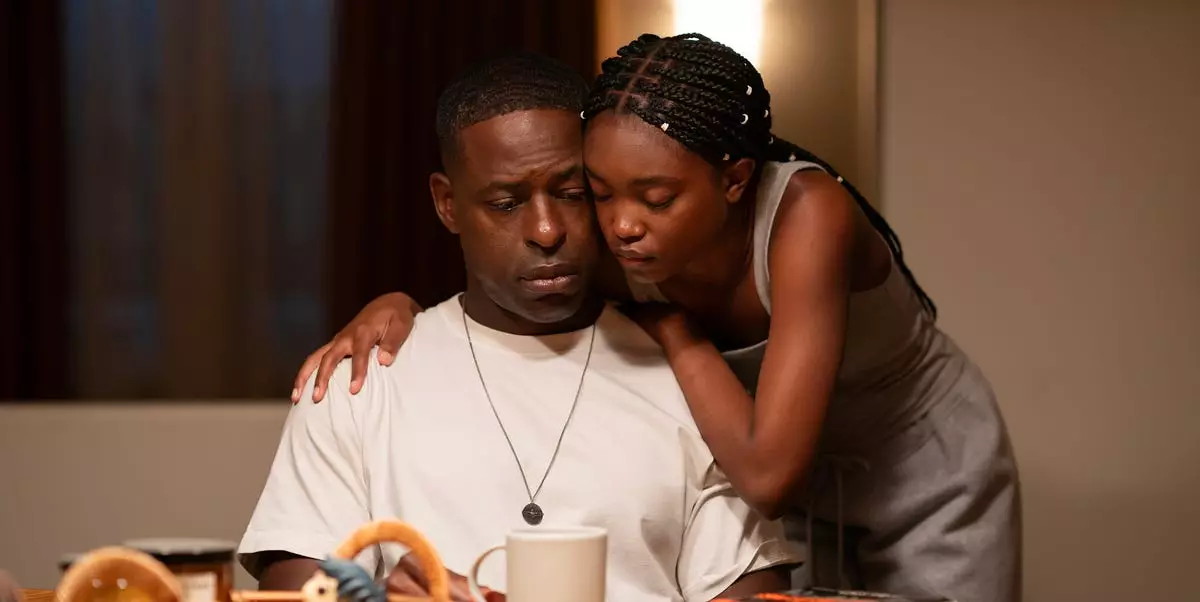The final episode of Hulu’s “Paradise” shrouds itself in a veil of mystery by commencing with a flashback that drags viewers twelve years into an unsettling past. The construction workers, introduced as unsuspecting pawns in a nefarious game, are misled into believing they are creating a benign “recycling facility.” This deliberate misdirection sets the stage for the tangled web of deception that fuels the show’s central narrative. As Project Manager Trent discovers the presence of a toxic chemical and raises alarms, we witness his futile attempts at transparency—a poignant metaphor for the struggle against systemic indifference. The immediate consequences of his whistleblowing underline how entrenched interests can thwart ethical efforts, exposing the vulnerability of individuals against organized deceit.
It’s disturbing how the corporate machinery, represented by Trent’s bosses, prioritizes secrecy and exploitation over human safety. This opening sequence foreshadows the moral decay enveloping “Paradise,” laying a solid foundation for the psychological turmoil that Trent experiences as he descends deeper into obsession and betrayal.
Descent into Chaos and Vengeance
The narrative arc takes a gripping turn when Trent is silenced and dismissed, illustrating how reliability and truth are sidelined in contexts powered by ambition and control. His chaotic descent into the underworld of violence culminates in a misguided assassination attempt, underscoring a tragedy that arises from desperation rather than malice. Trent’s character embodies a dark reflection of the lengths one might go to unearth truth, revealing an unsettling commentary on the failure of institutions and media.
The subsequent prison time acts as a crucible for Trent, reshaping him into a more complex character motivated by conflicting desires—revenge and the yearning for belonging within the fabricated creations of “Paradise.” The revelation that he adopts the identity of a librarian as a way of escaping his truth serves as a chilling reminder of the duality within us all, where purpose can morph from noble intentions to misguided quests for validation.
A Fractured Reality
Fast forward to the present, where the lines between truth and illusion blur. The introduction of Sinatra plays into this theme, as she plays a voice recording of Xavier’s wife, Teri. Her warnings about danger raise the stakes, showcasing how the past continues to haunt the characters, dictating their actions in an intricate interplay of suspense and fear. Xavier’s quest for his family battles against the corrosive backdrop of institutional malfeasance, further accentuating the feeling that every character is ensnared by unseen forces.
When Xavier discovers “The Man Who Kept the Secrets,” the layers of deception unravel as he learns more about what “Paradise” truly entails. The title of the episode highlights one of its central themes: the burden of knowledge. Xavier’s encounter with Trent illuminates how past decisions echo in the present, perpetual cycles of secrecy perpetuating suffering and chaos.
The Unraveling Near the Abyss
Trent’s confrontation with Xavier is a critical juncture, putting a face to the consequences of secrecy. Their meeting unveils the myriad ways characters are interconnected through tragedy and shared loss. Even as Trent reveals the timing of the world’s downfall and his subsequent metamorphosis within “Paradise,” we see the impact of dystopia on their psyches. His final act of defenestration—leaping off the scaffolding—symbolizes a rejection of the oppressive system while also implicating his acceptance of personal failure and vengeance.
Furthermore, the shocking emergence of Jane—a character who appears innocuous but turns lethal—serves as a dramatic twist that encapsulates feelings of betrayal, exploration of loyalty, and the lengths people will go in a fractured world. The dynamics of power struggle come full circle in this moment, as trust collapses under the weight of desperation and survival instincts.
A World on the Verge of Collapse
As the episode wraps, Xavier’s reunion with his children juxtaposes a moment of warmth against the bitter taste of betrayal and unresolved conflicts. His resolve to find Teri, armed with secrets that hold the potential to expose or further entrap him, projects a sense of impending chaos that lingers ominously. This culmination leaves viewers with a nagging anticipation of the upcoming season, questioning not just the survival of characters, but also the ethical lines they are willing to cross in a world that demands their complicity in darkness.
The horizon is riddled with uncertainty. Will the stitches holding this universe together fray further? Will Rivera’s narrative continue to balance personal redemption against systemic setback? Each character remains a vessel of experience, representing fragility amid an unforgiving landscape—a reality that challenges their humanity. “Paradise,” in its closing moments, leaves us grappling with the weight of knowledge, the essence of sacrifice, and the undying hope that truth may one day liberate them from their chaotic existence.

